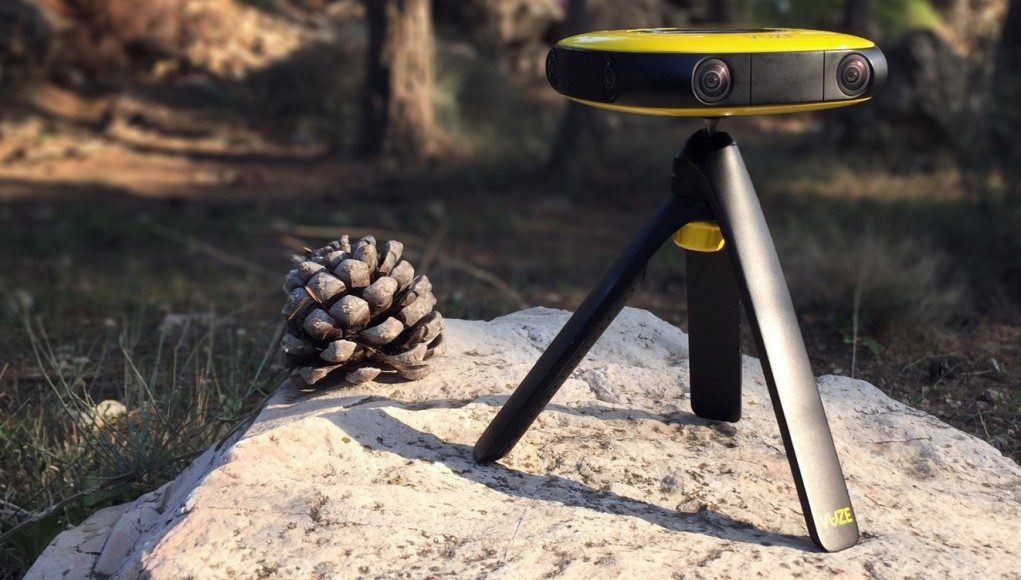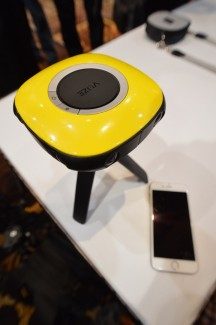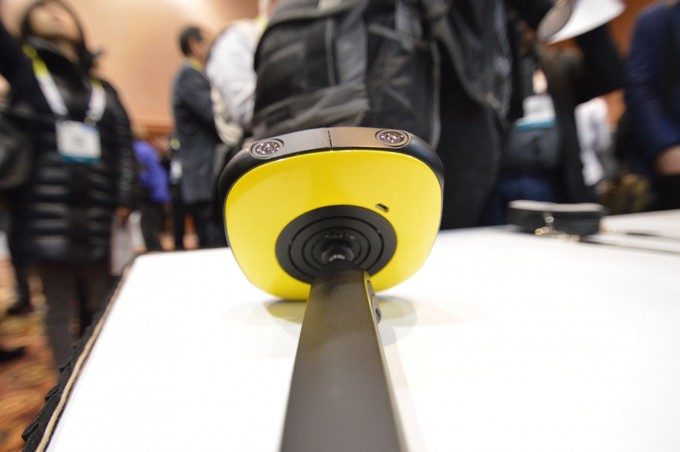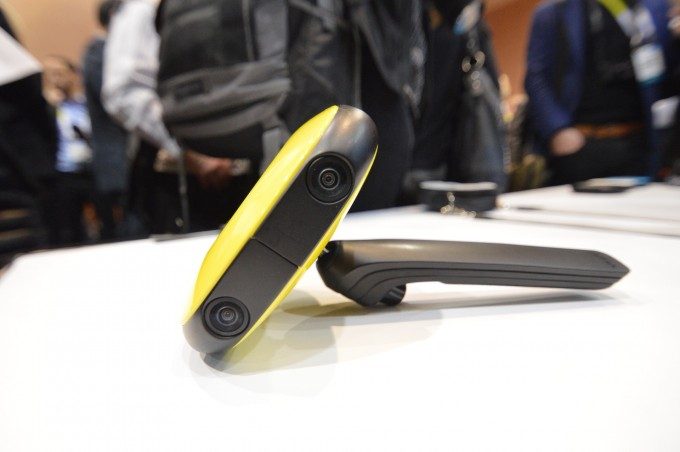At CES yesterday I had the chance to take a look at the new ‘affordable’ 360 camera called Vuze. The camera shoots at resolutions up to 4k per combined, sporting 8 x 1080p cameras capturing footage at up to 30FPS – all in a package supposedly costing less than $1000.
If you’ve followed the VR space over the last 2 years, you’ll have noticed there seems to be no shortage of technology companies touting their solutions to capture and process 360 video for use in virtual reality headsets. There aren’t too many that could be classed as aimed at ‘regular’ users at a price they might consider paying however.
Enter Vuze, a new camera powered by the folks at HumanEyes which claims it’s ease of use makes it perfect for the modern ‘Soccer Mom’ who wants to capture her family’s memorable moments in immersive spherical formats.
The definition of affordable is of course entirely subjective, and at a target price tag of between $800-1000, you may wonder if your parent’s would agree with the categorisation.
Nevertheless, the Vuze packs a fair amount of equipment into it’s diminutive shell for the money – sporting no less than 8x1080p sensors mounted at an approximation of an ‘average’ human IP – on each side of the square shell. The array is capable of shooting spherical video at a combined resolution of 4k at 30FPS. It has SD Card storage and offers live, onboard video compression which crunches as it caps.
The unit is neatly designed, with dimensions (12x12x3cm, weighing less than 280g) small enough to fit into a pocket. The multipurpose ‘minipod’, which doubles as a selfie stick is also nicely conceived.
Vuze comes with an end to end processing pipeline with stitching software, designed by HumanEyes, to be easy to use with as little fuss as possible. Once you’re done editing and stitching (HumanEyes claim a near 1:1 processing time – so for 1 minute of video, it should take roughly one minute to stitch), which will of course vary depending on the editing computer you’re working on. One you’re done, export to the Vuze smartphone app to view the results.
The one issue you may have noted reading these specs is that the camera can capture at no more than 30FPS. Whilst there is yet to be any proper consensus as to the best, minimum target frame rate for 360 3D video shot for VR, it’s fair to say ‘the higher the better’ is the rule of thumb. Which leaves the Vuze’s 30FPS running at half Gear VR’s display refresh rate looking little lacklustre.
Unfortunately, we weren’t able to gauge the quality the camera is capable of, so judgement on this front must be reserved for now.
The Vuze package is neat it’s approaching affordability, and if Vuze makes it to market soon, it’ll be one of the first solutions of it’s kind you can actually buy.










